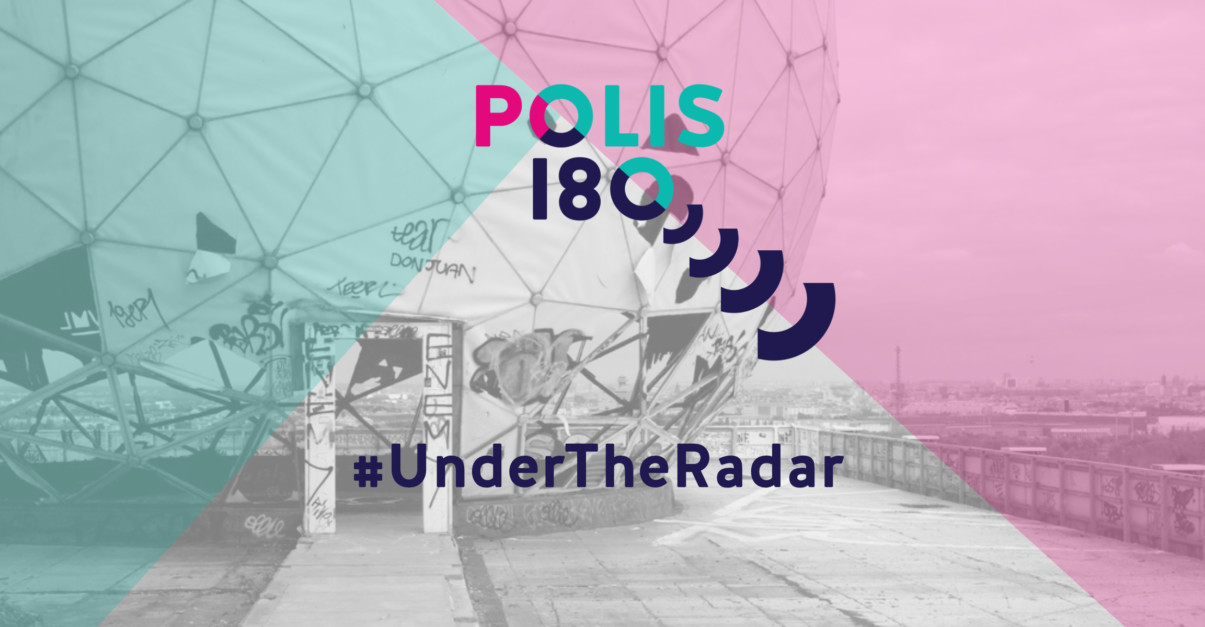For the first time, the Polis Blog presents three news stories that undeservedly slipped through the cracks of last month’s media attention.
A Column by Anne-Kathrin Glück
How often have we clicked on different news websites just to find that the daily coverage of political events seems very similar? How many of us have given up the effort to scour the internet for varied news stories while frequently fallen into the trap of paraphrasing the judgment of others instead of making up our own mind? Our perceived lack of enlightening information is an irony of the digital age we live in. In theory our era provides us with all the necessary gadgets to surf the information wave and come across tons of interesting articles every day. Perhaps we sometimes need to be pushed to wander off the beaten track in our search for worthwhile reports. That’s what #UnderTheRadar intents to do. Our editors provide you with material that undeservedly slipped through the cracks of media attention starting now with March 2016.
Polis Programme European Union: European Commission’s Committment For a More Social Labour Market
In his first state of the union speech in September 2015, Jean-Claude Juncker announced the development of a European pillar of social rights with the aim to examine various aspects of the pan-European labour market. He wants to set out common rules and principles for a striving and prosperous future. In March 2016, the Commission eventually launched a public consultation open to everyone who wants to join the debate on a better, fairer and stronger Europe. The consultation process will run until the end of 2016 with the initiative being targeted mainly at the euro area. The Commissioner for Employment, Social Affairs, Skills and Labour Mobility Marianne Thyssen has stressed that the conditions for workers in the internal market must align with the EU’s economic success, aiming for a ‘social triple A’ for Europe. She also presented a legislative proposal on posting of workers where she condemned the increasing divergence in wages among member states.
Why should this be on our radar? After 25 years of discussions, a more “social Europe” seems now to be the only way forward in times of toxic doses of unemployment and Zukunftsangst.
Polis Programme Migration: When a Refugee Camp Turns Into a Refugee Community
In September 2015, around 20 families moved into a Jewish refugee-camp near Kiev. While one may think of yet another compound of huge plastic tents with an imminent supply crisis ahead, Anatevka turned out to be different. With the help of Jewish communities and donations Jewish refugees who fled war-torn East Ukraine have built a wooden village – seen as a modern-day revision of the classic Jewish shtetl – and even celebrated the recent opening of a new (wooden) synagogue that was constructed within just a few weeks. Rabbi Moshe Azman of Kiev is the man behind the community and named the village after the fictional town from Joseph Stein’s musical Fiddlers on the Roof. The traditional aspect of the community life in Anatevka seems not only to help refugees to relocate and resettle but to create a place of hope, something truly inspiring in times of mass migration, political failure and philosophical stagnation.
Why should this be on our radar? Allowing refugees to build their own communities provides a worthwhile way forward in the current migrant crisis.
Polis Programme Peace & Security: Croatia the Game Changer in European Energy Policy
Since the outbreak of the Ukraine conflict in 2013, the need to increase energy production in the EU as well as diversify supplier countries and routes has become a top priority of the EU’s energy policy. With Russia remaining one of the EU’s largest energy suppliers, especially Eastern European member states consider their dependence on Russian oil and gas as a danger to their political and economic stability. The First Deputy Prime Minister of the latest EU member Croatia Tomislav Karamarko was keen to speed up negotiations about the floating LNG (Liquified Natural Gas) terminal on the island of Krk. Following a meeting with the US State Department’s Special Envoy and Coordinator for International Energy Affairs Amos Hochstein in March, Karamarko underlined that the Krk facility was in the interest of both Croatia and the US. By expanding its LNG infrastructure, Croatia is taking on the opportunity to become an important hub for LNG imports from the US, Australia and Qatar.
Why should this be on our radar? In the medium term, EU energy independence from Russia stands the chance of sustainably altering the European security architecture.
In a (new) column edited by the Polis Blog, newsworthy issues in foreign and European policy that slipped through the cracks of public attention are informally listed in a Top 3 linked to the Polis180 Programs Europe, Peace & Security, and Migration.
Image source: „teufelsberg ii“, von Büsenfeld, http://bit.ly/1RMYPlj, lizensiert unter Creative Commons license 2.0.: https://creativecommons.org/licenses/by/2.0/.
